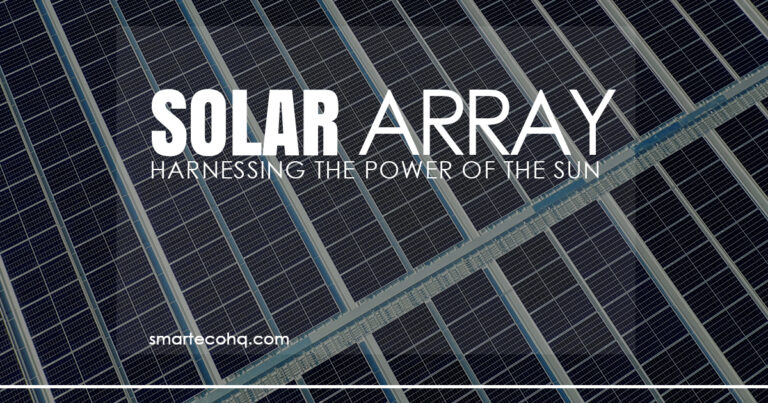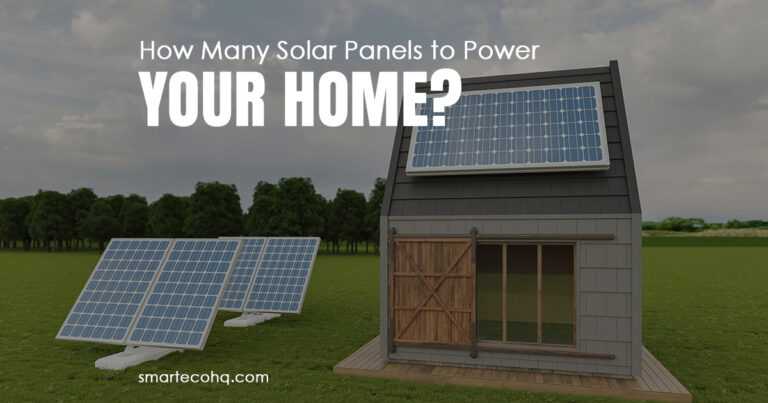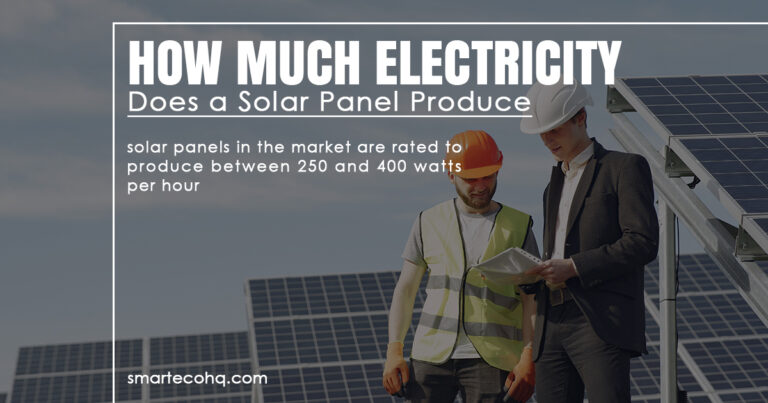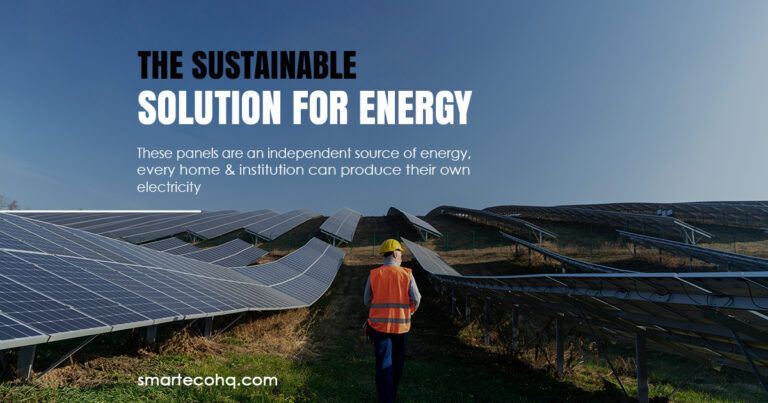Do Solar Panels Cool Your Roof? (or Make it Hotter?)
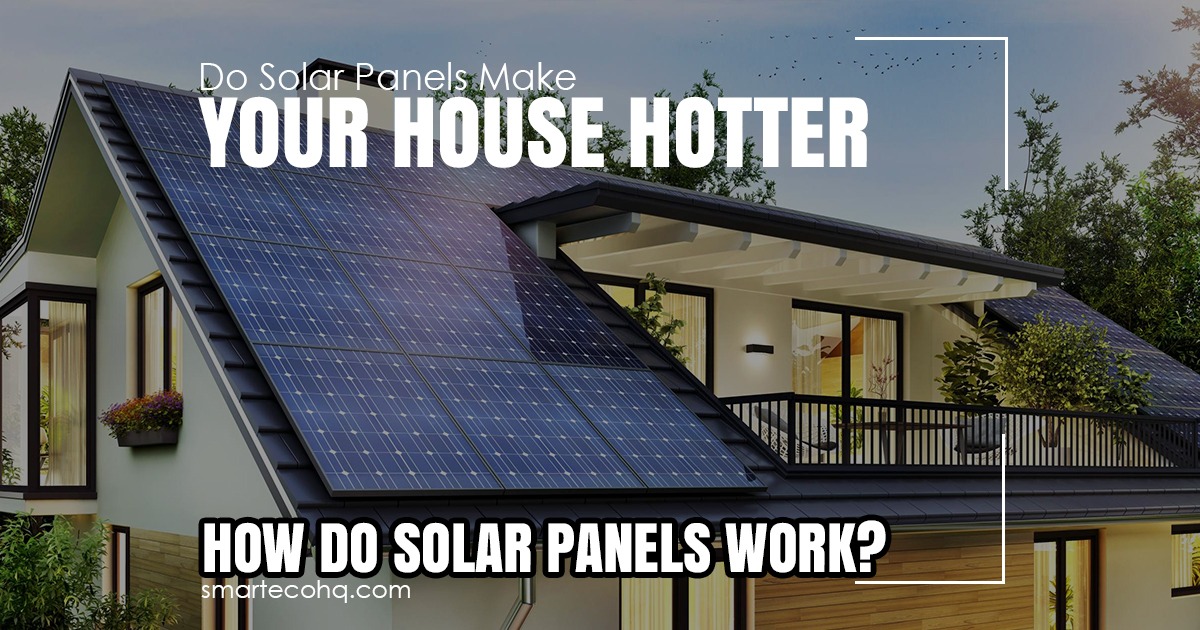
Ever wondered ‘Do solar panels cool your roof or make it hotter?’ Uncover the truth about solar panels and roof temperatures here.
Do Solar panels make your house hotter? No, they minimize heat in the house while also extending the life of the roof. Solar panels minimize the amount of heat that hits the roof by 38%, according to a study done by UC San Diego investigators.
Solar panels have become an increasingly popular option for households wishing to lower their carbon footprint & conserve money on energy costs as the world swings towards renewable energy sources. However, many homeowners are concerned about whether solar panels will make their homes hotter. In this article, we will go over this issue in depth and address some of the most often-asked questions about it.
How do solar panels work?
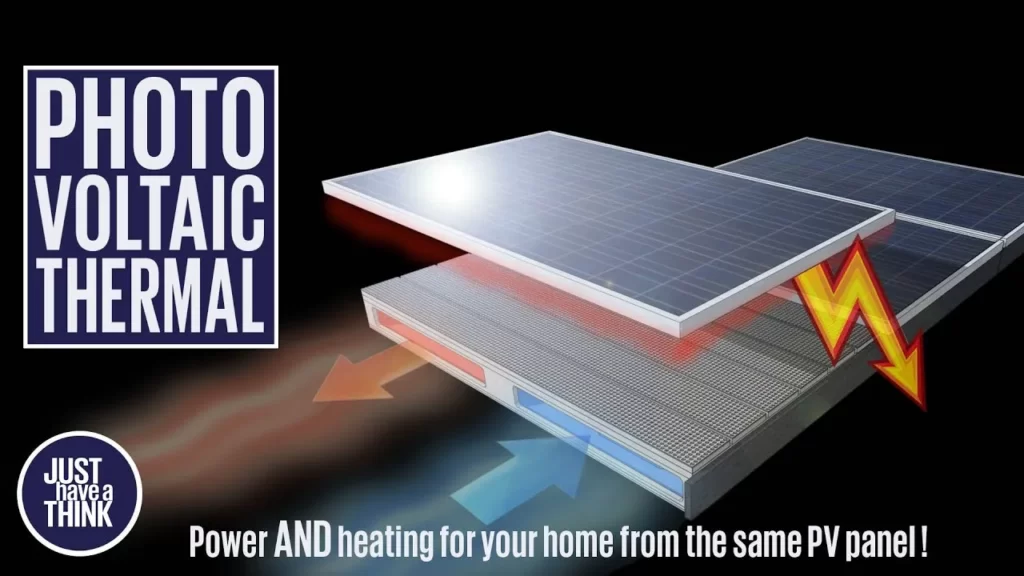
Before getting into whether solar panels make your home hotter, it’s important to know how they work. Solar panels are made up of photovoltaic cells that turn sunlight into electricity. They are generally installed on rooftops or in other locations that catch direct sunlight. When sunlight strikes the solar panels, the photovoltaic cells in them convert solar power into direct current (DC) electricity.
The direct current (DC) electricity generated by the solar panels is then sent to an inverter, which transforms it to alternating current (AC) electricity that may be utilized to power your home. Any extra electricity generated by the solar panels goes back to the grid, and you’ll receive credits on your energy bill.
Do solar panels make your house hotter?
This question has two answers: yes and no. Solar panels do not increase the temperature of your home in the exact same way that a heater or furnace does. They generate little heat by burning fuel & release no greenhouse emissions or other harmful substances.
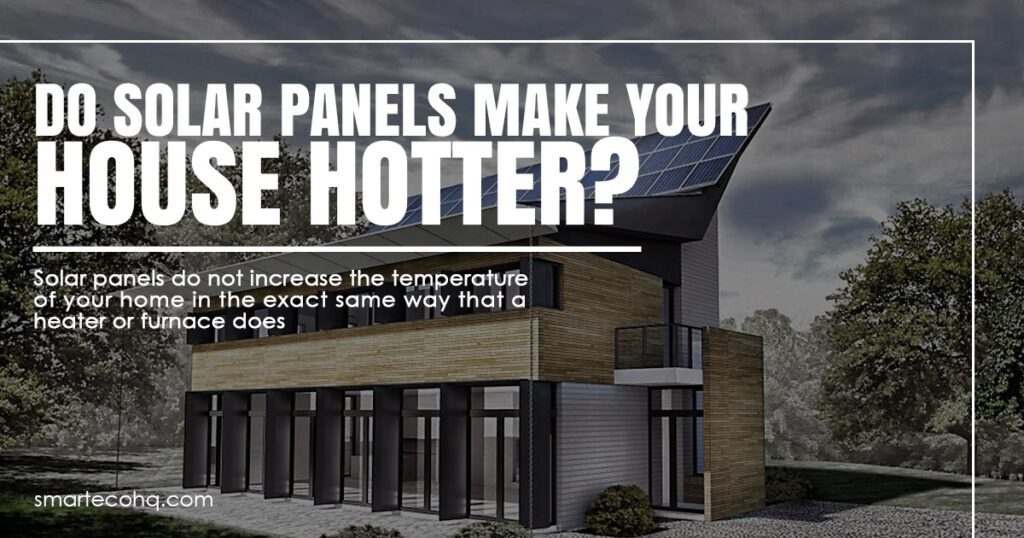
Solar panels, on the other hand, can absorb and reflect heat, making your house warmer in certain conditions. When sunlight strikes solar panels, part of the energy is collected and some are reflected back into the atmosphere. The energy that is absorbed may trigger the solar panels to warm up, which can then be transmitted to your roof as well as other areas of your home.
This heat transfer can lead the home to become hotter than it would be without solar panels in some instances. However, this effect is often minor & can be decreased by utilizing specific types of solar panels & performing other heat transfer-reducing measures.
Studies on Solar Heat Absorption
Numerous research has been carried out to assess the effect of solar panels on house temperature. According to research, solar panels have a minor effect on overall house temperature. In fact, solar panels have been discovered to provide a cooling impact in some circumstances by reducing the quantity of heat transported through the roof.
Solar panels, as compared to standard roofing materials, can maintain lower temperatures due to their reflecting qualities. This improves heat dissipation and reduces heat buildup within the house.
How to reduce heat transfer from solar panels?
There are various methods for reducing heat transmission from solar panels and keeping your home from becoming overheated. Here are a few pointers:
Choose solar panels with low heat absorption
Some solar panels are made to hold less heat than others. Look for low-temperature coefficient panels, which will warm up less in extreme temperatures.
Install solar panels with an air gap
Solar panels with an air gap between them and the roof can help reduce heat transfer by allowing air to flow between the panels and the roof.
Install a cool roof
A cool roof is one that is designed to reflect sunlight while absorbing less heat. If you’re installing solar panels on an entirely new roof, think about using a cool roof material like white or light-colored shingles or metal.
Install attic insulation
Proper insulation may help minimize heat transfer from your roof to the interior of your home. If your house is not currently well-insulated, think about adding attic insulation.
FAQs
Do solar panels cool down my roof?
es, solar panels can have a cooling effect on your roof. They act as a barrier, reducing direct exposure to sunlight and lowering the temperature of the roof surface.
Can solar panels make my roof hotter?
While solar panels can generate some heat during electricity conversion, their shading effect typically outweighs any minor heating, resulting in a net cooling effect on the roof.
Will solar panels increase my energy consumption for cooling?
No, solar panels can actually reduce your energy consumption for cooling. By cooling the roof and reducing heat transfer, they help alleviate the strain on your cooling systems.
Conclusion
Solar panels can not increase the temperature of your home, but they can absorb and reflect heat, making it warmer in some circumstances. This effect can be mitigated by selecting the proper type of solar panel and taking other precautions to prevent heat transmission. Finally, the advantages of solar panels outweigh any potential heat transmission difficulties.

